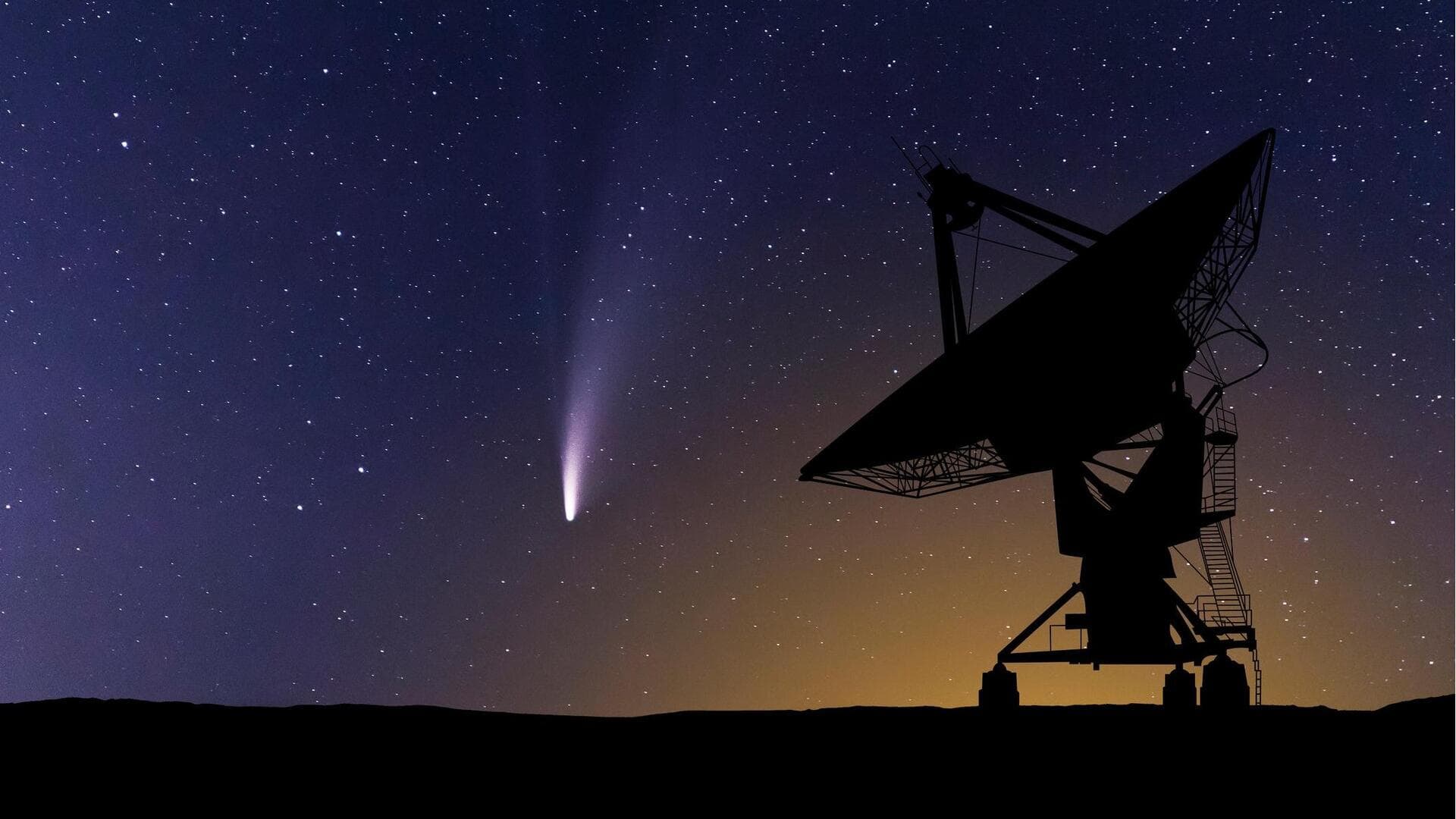
Comet G3 Atlas—seen once in 160,000 years—to peak tonight
What's the story
A rare celestial event will take place tonight as Comet G3 ATLAS (C/2024) reaches its peak brightness tonight. The comet was discovered by the Asteroid Terrestrial-impact Last Alert System (ATLAS) in Chile, on April 5, 2024. Initially faint with a magnitude of +19, recent observations show a dramatic increase in brightness after an outburst on January 2, 2025. This surge has led to predictions that the comet could outshine prominent planets like Venus and Jupiter.
Viewing details
Comet's trajectory and visibility
Comet G3 ATLAS will shine brightly at around -3.2 magnitude tonight, making it visible to the naked eye under ideal conditions. The best viewing opportunities will be in the Southern Hemisphere, just after sunset. However, those in the Northern Hemisphere may find it difficult due to its low position on the horizon and bright twilight. Despite this, its trajectory now takes it north, offering easier viewing opportunities between January 12-14.
Space view
Astronaut Pettit captures comet from International Space Station
Astronaut Don Pettit recorded the comet from the International Space Station as it streaks across the planet on its cosmic journey. He shared the awe-inspiring experience on X, saying "It is totally amazing to see a comet from orbit. Atlas C2024-G3 is paying us a visit." This rare view gives a glimpse into the celestial event that has mesmerized astronomers and stargazers alike across the globe.
Uncertainties
Comet's close approach to Sun raises questions
As G3 ATLAS nears perihelion, astronomers are keeping a close watch on its activity. The close encounter with the Sun raises questions about the comet's stability; large comets tend to fragment during such close encounters. However, despite all the uncertainties, excitement is palpable among stargazers and scientists alike as they prepare for what could be a once-in-a-lifetime spectacle.